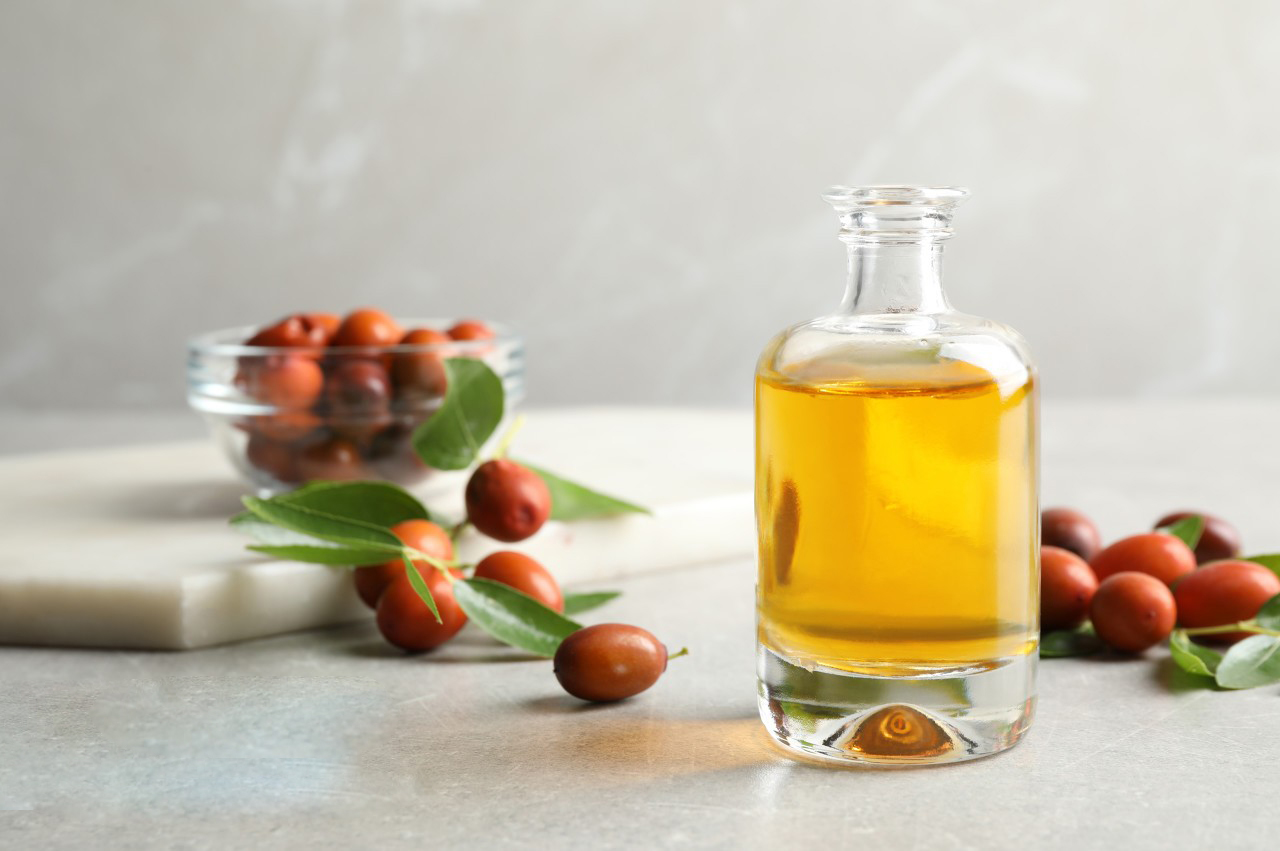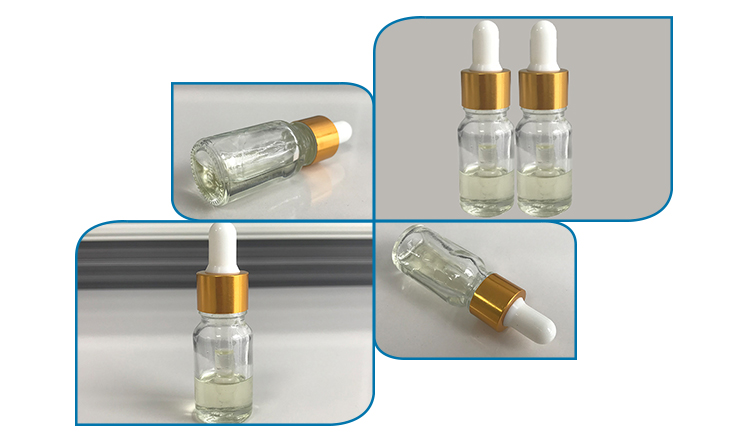Jojoba oil is derived from the seeds of the jojoba plant (Simmondsia chinensis), which is native to the southwestern United States and northern Mexico. The oil is not actually an oil but a wax ester, making it more similar to the natural oils produced by human skin than traditional plant oils.
The basic composition of jojoba oil includes:
Wax Esters: Jojoba oil consists primarily of wax esters, which are long-chain fatty acids attached to long-chain alcohols. These wax esters make up around 97% of the composition of jojoba oil.
Fatty Acids: Jojoba oil also contains a small percentage of fatty acids, including oleic acid, stearic acid, palmitic acid, and linoleic acid.
Vitamins and Minerals: Jojoba oil contains small amounts of vitamins and minerals, including vitamin E, vitamin B complex, zinc, copper, selenium, chromium, and iodine.
Antioxidants: Jojoba oil contains natural antioxidants, such as vitamin E, which help protect the skin from oxidative stress and free radical damage.
Other Components: Trace amounts of other compounds, such as tocopherols, saponins, and fatty alcohols, may also be present in jojoba oil.
Overall, jojoba oil is valued for its moisturizing, soothing, and nourishing
properties, making it a popular ingredient in skincare products and cosmetics.

The effect of Jojoba Oil
Jojoba oil, extracted from the seeds of the jojoba plant (Simmondsia chinensis), has gained popularity in skincare and haircare due to its various beneficial properties. Here are some of the effects and benefits associated with jojoba oil:
Moisturizing: Jojoba oil closely resembles the natural oils produced by our skin, making it an excellent moisturizer. It can penetrate deeply into the skin without clogging pores, providing long-lasting hydration.
Balancing: Jojoba oil helps regulate sebum production, making it suitable for both oily and dry skin types. It can help control excess oiliness in the skin while also providing hydration to dry patches.
Antibacterial and Antifungal: Its antimicrobial properties make jojoba oil effective in combating bacteria and fungi that can lead to skin issues such as acne and dandruff.
Anti-inflammatory: Jojoba oil contains compounds like vitamin E and various antioxidants, which help reduce inflammation and soothe irritated skin. It can be beneficial for conditions like eczema, psoriasis, and sunburn.
Non-comedogenic: Unlike some other oils, jojoba oil is non-comedogenic, meaning it won’t clog pores. This makes it suitable for acne-prone skin and can even help in reducing the appearance of acne scars.
Haircare: Jojoba oil can be used to moisturize the scalp, promote hair growth, and add shine to hair. Its similarity to natural scalp oils makes it an excellent choice for conditioning treatments.
Makeup Removal: Jojoba oil is effective in breaking down makeup, including waterproof mascara, without stripping the skin of its natural oils.

Wound Healing: Some research suggests that jojoba oil may promote wound healing due to its anti-inflammatory and moisturizing properties.
Anti-aging: The antioxidants present in jojoba oil, such as vitamin E, can help protect the skin from free radicals, which contribute to premature aging.
Gentle and Hypoallergenic: Jojoba oil is generally well-tolerated by most people, including those with sensitive skin, making it a versatile and gentle option for skincare.
It’s important to note that individual experiences with jojoba oil may vary, and it’s always advisable to do a patch test before using any new skincare product, especially if you have sensitive skin or allergies.
